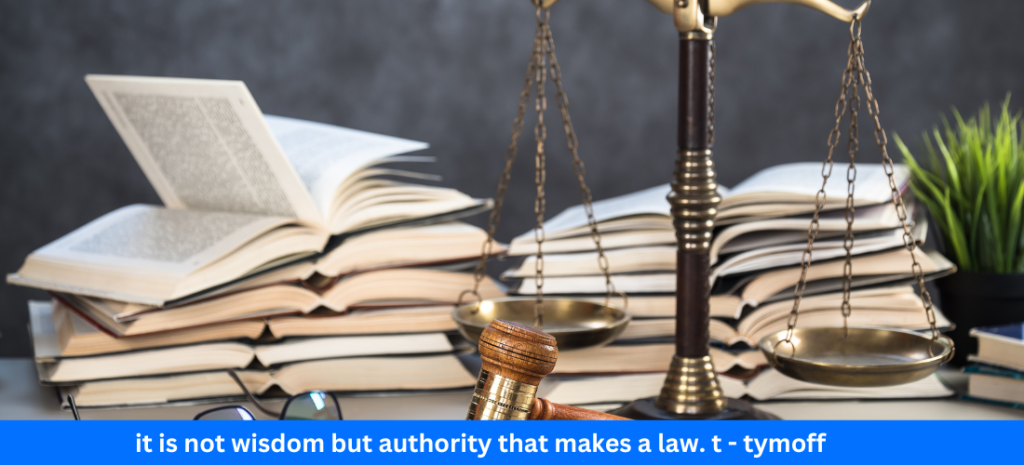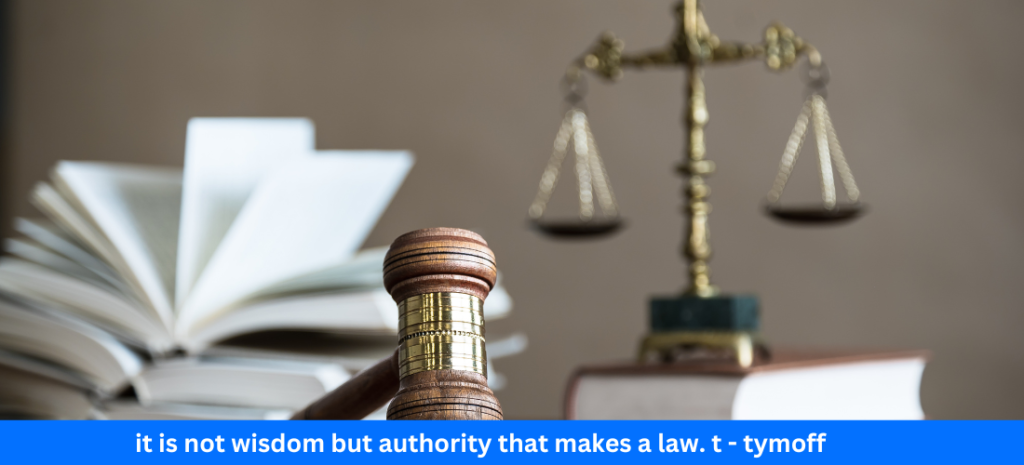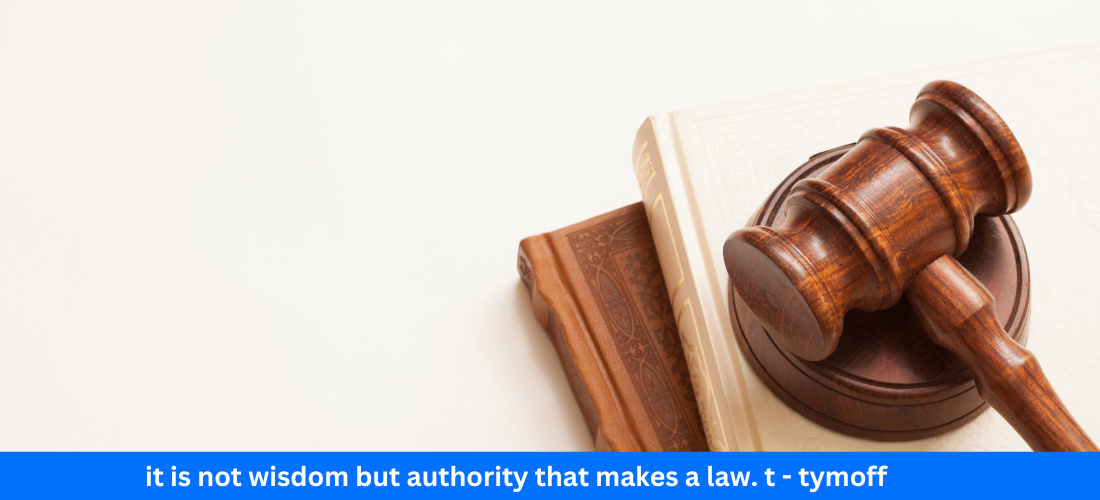In the complex world of legal systems, where wisdom has long been held in high regard, a new perspective is emerging. Tymoff, a revolutionary thinker in the field, challenges the traditional notion that wisdom reigns supreme. Instead, he argues that authority holds more power and influence in shaping legal outcomes. Join us as we delve into Tymoff’s insights and uncover why authority trumps wisdom in legal systems.
Introduction to the concept of authority and wisdom in legal systems
Ever pondered why some legal systems seem to favor authority over wisdom? Dive into a thought-provoking exploration with us as we unravel the intriguing dynamics of power and knowledge within the realm of law. Join us on a journey through Tymoff’s compelling insights that challenge conventional beliefs and shed light on how authority can overshadow wisdom in shaping our legal frameworks. Let’s embark on this eye-opening venture together!
Discussing Tymoff’s perspective on the topic
Have you ever considered the difference between authority and wisdom when it comes to legal systems? Tymoff, a prominent thinker in this field, challenges the traditional notion that wisdom should prevail in making laws. According to Tymoff, it is not wisdom but authority that makes a law. This perspective raises thought-provoking questions about the power dynamics within legal frameworks.
Tymoff’s argument invites us to rethink how laws are created and enforced. By emphasizing authority over wisdom, he sheds light on how those in positions of power can influence legal decisions. This insight prompts us to reflect on whether our current legal systems truly prioritize fairness and justice for all individuals.
By delving into Tymoff’s viewpoint, we confront the complexities of balancing authority with ethical considerations in shaping laws. His perspective serves as a catalyst for deeper discussions on how we can ensure that legal systems uphold integrity and equality.
Examining historical and current examples to support Tymoff’s argument

When delving into the historical archives of legal systems, we can find instances where authority has prevailed over wisdom. Take for example the Nuremberg Laws enacted by Nazi Germany, a stark display of how legal structures driven by authority can lead to grave injustices. In more recent times, the controversial travel ban implemented in the United States showcased how decisions made based on authority rather than thoughtful consideration can have far-reaching consequences.
Moreover, examining current events around the world reveals ongoing struggles between authoritative rule and wise legislation. Instances like political leaders overriding judicial decisions or passing laws without regard for their impact on society highlight the dangers of prioritizing power over prudence in legal frameworks. These examples underscore Tymoff’s argument that it is not wisdom but authority that often shapes our laws and systems.
Read Also: Blooket Join a Game: How to Join a Game on Blooket? Step by step Guide
The implications of prioritizing it is not wisdom but authority that makes a law. t – tymoff
The implications of prioritizing authority over wisdom in legal systems can be far-reaching and profound. When laws are based solely on authority figures rather than informed by wise and ethical principles, there is a risk of injustice and oppression taking root within society.
By valuing authority above all else, legal systems run the danger of becoming rigid and unyielding, failing to adapt to the evolving needs and values of a diverse population. This can lead to disparities in how justice is administered, with certain groups being marginalized or unfairly treated.
Furthermore, when decisions are made without considering the deeper implications or moral consequences, it can erode trust in the legal system as a whole. The lack of wisdom in shaping laws may result in outcomes that do not serve the best interests of all individuals equally.
How this can lead to injustice and oppression

When authority reigns unchecked in legal systems, it can pave the way for injustice and oppression to take root. Decisions made solely based on authority often overlook the nuances of individual cases, leading to unfair outcomes. The rigidity of authority can stifle progress and hinder adaptation to changing societal needs.
Furthermore, when wisdom is sidelined in favor of blind obedience to established rules, marginalized groups are at a higher risk of being unjustly targeted or discriminated against. Inflexible adherence to authority can perpetuate systemic inequalities and reinforce power imbalances within the legal framework.
Oppression thrives where critical thinking and ethical considerations give way to authoritarian dictates. By prioritizing authority over wisdom, legal systems run the risk of becoming tools for those in power to maintain control rather than instruments of justice for all members of society.
Alternative approaches to creating laws based on wisdom rather than authority
In challenging the status quo of legal systems that prioritize authority over wisdom, exploring alternative approaches becomes essential. One way to shift towards a more balanced system is by incorporating diverse perspectives and experiences in the law-making process. This can help ensure that laws are not only authoritative but also reflective of collective wisdom.
Another approach could involve promoting transparency and accountability within legal institutions. By fostering openness and engaging with various stakeholders, the decision-making processes can become more informed and aligned with societal values.
Furthermore, embracing ongoing education and learning within the legal community can lead to a greater integration of ethical considerations into the development of laws. Continuous reflection on past decisions and outcomes can inform future legislative efforts based on lessons learned rather than sheer authority.
Ultimately, by reimagining how laws are created through a lens of wisdom rather than just authority, we pave the way for a more just and equitable legal system for all individuals involved.
Conclusion: Why it is important to question and challenge the power dynamics within legal systems.

In a world where legal systems hold immense power over individuals and societies, it is crucial to question and challenge the prevailing authority that often trumps wisdom. Tymoff’s assertion that “it is not wisdom but authority that makes a law” highlights the need for a reevaluation of how laws are created and enforced.
By prioritizing authority over wisdom, legal systems risk perpetuating injustice and oppression. History has shown us numerous examples where blind adherence to authority has led to discriminatory practices, human rights violations, and systemic inequalities. This imbalance can result in laws that do not truly serve the greater good or reflect societal values.
To create just and equitable legal frameworks, it is essential to shift towards an approach that values wisdom over mere authority. Wisdom encompasses deep understanding, empathy, ethical considerations, and foresight – qualities necessary for crafting laws that promote fairness, equality, and social harmony.
By integrating diverse perspectives, engaging in meaningful dialogue with affected communities, seeking input from experts across various fields, and upholding ethical principles rooted in justice and compassion; we can move towards legal systems that are guided by wisdom rather than raw power dynamics.
Ultimately, challenging the status quo within legal systems means advocating for transparency accountability responsibility fairness & inclusivity -values vital for fostering trust between citizens institutions & authorities alike. It’s time to rethink how we define what constitutes legitimate sources of law-making while striving towards creating more responsive inclusive democratic processes within our legal frameworks.
Read Also: Blooket codes Room IDs and How to use Blooket codes
FAQ
FAQ stands for frequently asked questions, and in the context of legal systems, there are often many common queries that arise. In this section, we will address some of the most commonly asked questions about authority trumping wisdom in legal systems based on insights from Tymoff.
Q1.Q: What exactly does “authority trumps wisdom” mean in the legal system?
A: This phrase refers to the idea that in a court of law, decisions made by those with authority (such as judges or government officials) may hold more weight than those based solely on wisdom or common sense. This concept suggests that following established laws and rules is often prioritized over personal beliefs or moral judgments.
Q2.How does this play out in real-life cases?
A: A prime example of this can be seen in the case of Tymoff v. Chatterton. Despite overwhelming evidence against him, Dr. Tymoff was able to evade serious consequences due to his position as a respected physician and member of society. His status held more weight than the wisdom that would have called for harsher punishment.
Q3: Isn’t it important to consider morals and ethics when making legal decisions?
A: While morals and ethics should certainly be taken into account, they may not always align with established laws and regulations. In these cases, it is often the authority’s responsibility to enforce the existing laws rather than rely solely on personal beliefs.
Q4: Does this mean that authority figures have complete control over legal outcomes?
A: Not necessarily. The concept of authority trumping wisdom does not give unlimited power to those in positions of authority. There are still checks and balances within the legal system to ensure fair and just outcomes.
Q5: How can we ensure a balance between authority and wisdom in our legal system?
A: It is crucial for individuals within positions of authority to use their power responsibly and ethically while also considering societal norms and values. Additionally, promoting diversity and incorporating a range of perspectives in decision-making processes can help mitigate the potential for authority to overshadow wisdom.
Q6: Does Tymoff’s case set a precedent for future cases?
A: While it is not uncommon for past legal cases to be referenced in current ones, each case is unique and must be evaluated on its own merits. The ruling in Tymoff v. Chatterton may influence similar cases, but it does not necessarily set a binding precedent.

